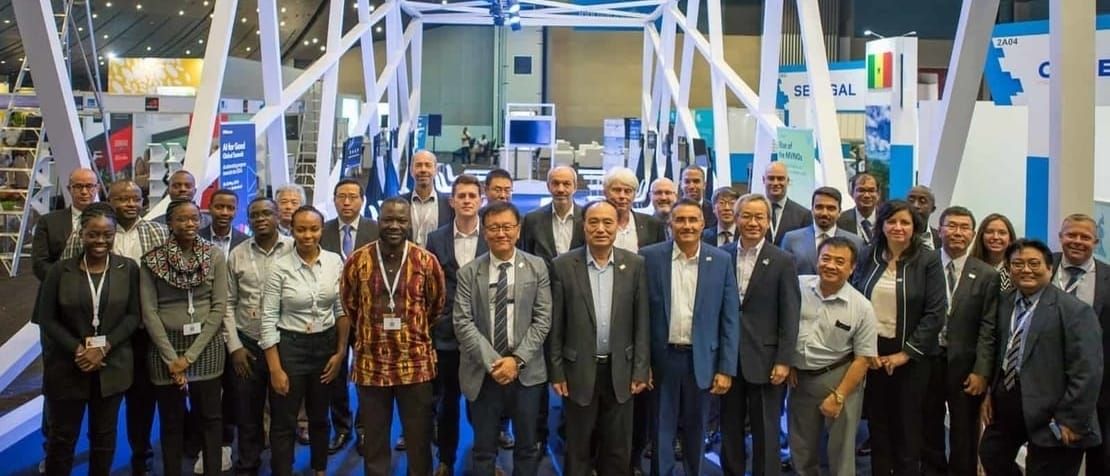
App security quantum cryptography smart cities 5G investment Industry leaders highlight priorities
The increasing importance of over-the-top (OTT) services calls for greater application security. The impending arrival of quantum computing demands innovation in cryptography to guard against new threats to security. Accelerated debate is required around policy support for 5G (IMT-2020) infrastructure investment. Data sharing remains a key priority for the Internet of Things (IoT), particularly IoT applications in smart cities.
These were among the key conclusions of the tenth annual Chief Technology Officer (CTO) Meeting held in conjunction with ITU Telecom World in Durban, South Africa, 10-13 September 2018.
The meeting brings CTOs together to discuss industry needs and associated standardization priorities.
The trends discussed at the CTO meeting reflect the evolution of ITU membership, in particular that of ITU’s standardization arm (ITU-T).
ITU-T membership has taken a sharp upward trajectory, welcoming 35 new industry players in 2018.
New ITU-T members include mobile virtual network operators and enablers (MVNOs and MVNEs), manufacturers of unmanned aerial vehicles, telematics and automotive companies, OTT service providers, energy utilities, and companies specializing in quantum cryptography and quantum communications.
The CTO meeting issued a communiqué summarizing trends in information and communication technology (ICT) of growing relevance to ITU standardization.
<Download the CTO meeting communiqué>
ICT and the Fourth Industrial Revolution
CTOs discussed ‘four pillars’ of sustainable development: energy, transport, ICT and water.
These discussions drew a comparison with the first and second industrial revolutions. These revolutions were enabled primarily by network effects – more widespread access to water, energy and transport.
Digitalization, said CTOs, and especially access to data, will initiate similar network effects in the coming decade, supported by the rollout of 5G systems.
OTT application security
The need for greater app security stems from the increasing importance of OTT services, said CTOs, considering OTTs’ exchange of sensitive personal data and growing relevance to critical infrastructure such as energy grids and road-transport infrastructure.
Greater app security, highlights the CTO communiqué, would require standards providing frameworks for the objective measurement of app security and interpretation of associated results.
Big brands often inspire end-user trust. But the application space has become very diverse. App-security standards could offer a ‘label of trust’, said CTOs, giving end-users confidence that personal data is handled appropriately by all app providers.
Quantum-safe cryptography
Quantum computing – computing exploiting quantum mechanics – poses significant risks to security.
Public key cryptography using asymmetric keys is a cornerstone of authentication over public networks. But quantum computing is quick to solve integer-factoring and discrete-logarithm problems, problems relied on by almost all public key cryptography.
This understanding led CTOs to highlight the importance of quantum-safe public key cryptography as well as interoperable quantum-safe communications, in particular the secure distribution of symmetric encryption keys.
Policy and regulatory support for 5G
CTOs discussed the new ICT use cases expected to emerge in the years following 2020 as 5G systems begin to see large-scale deployment.
The meeting debated how policy-makers and regulators could support the emergence of an enabling environment for sustainable investment in 5G infrastructure. Emphasis was placed on the need to remove impediments to small-cell deployment, an issue highly relevant to regulators in developing countries.
The CTO communiqué calls for more focus on policy and regulatory questions relevant to accommodating 5G use cases and encouraging supporting market growth, innovation, collaboration and ICT infrastructure investment, studies that would consider the increasing importance of OTT services.
Technologies for ‘Network 2030’
ICTs could in future offer a truly immersive communications experience, an experience that CTOs expect will come to captivate all five human senses. But these highly interactive, high-precision applications will demand networks to transmit large volumes of data with minimal delay, potentially calling for significant innovation in protocols, network architectures and the monitoring of performance, QoS and QoE.
ITU launched new work in July 2018 to put forward a vision of ‘Network 2030’ capabilities, work expected to propose use cases spanning new media such as hologrammes, a new generation of augmented and virtual reality applications, and high-precision communications for ‘tactile’ and ‘haptic’ applications.
Learn more about ambitions for Network 2030 from a Whitepaper contributed to ITU by Huawei’s Future Network Team.
Internet of Things (IoT) and smart cities
Cities of the future aim to be smart, sustainable and safe. 5G, IoT and access to data will make key contributions to the realization of these objectives, said CTOs.
CTOs summarized the challenge facing standards developers as the need to provide common platforms for diverse forms of innovation, providing enablers fundamental to all smart-city applications and services.
CTOs converged around three technical priorities for the development of smart cities, all to be supported by effective stakeholder collaboration:
- Commercially viable cross-application use cases will be essential to the sustainable development of IoT-enabled smart cities.
- Industry must enable the exchange of data between IoT platforms as well as privacy protection and compliance with relevant regulations.
- IoT platforms will increasingly be required to process audio and video streams, calling for edge-cloud and central-cloud processing with high-performance computing capabilities.
Learn more about the discussions of the CTO meeting from an ITU interview with Bilel Jamoussi, Chief of the ITU-T Study Groups Department.
